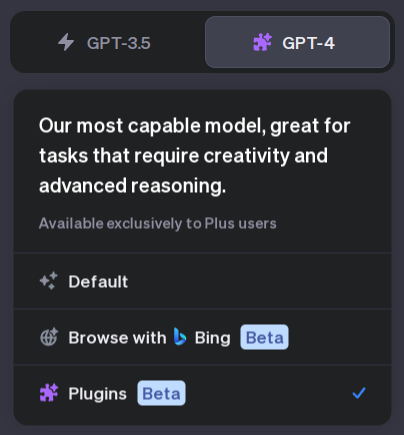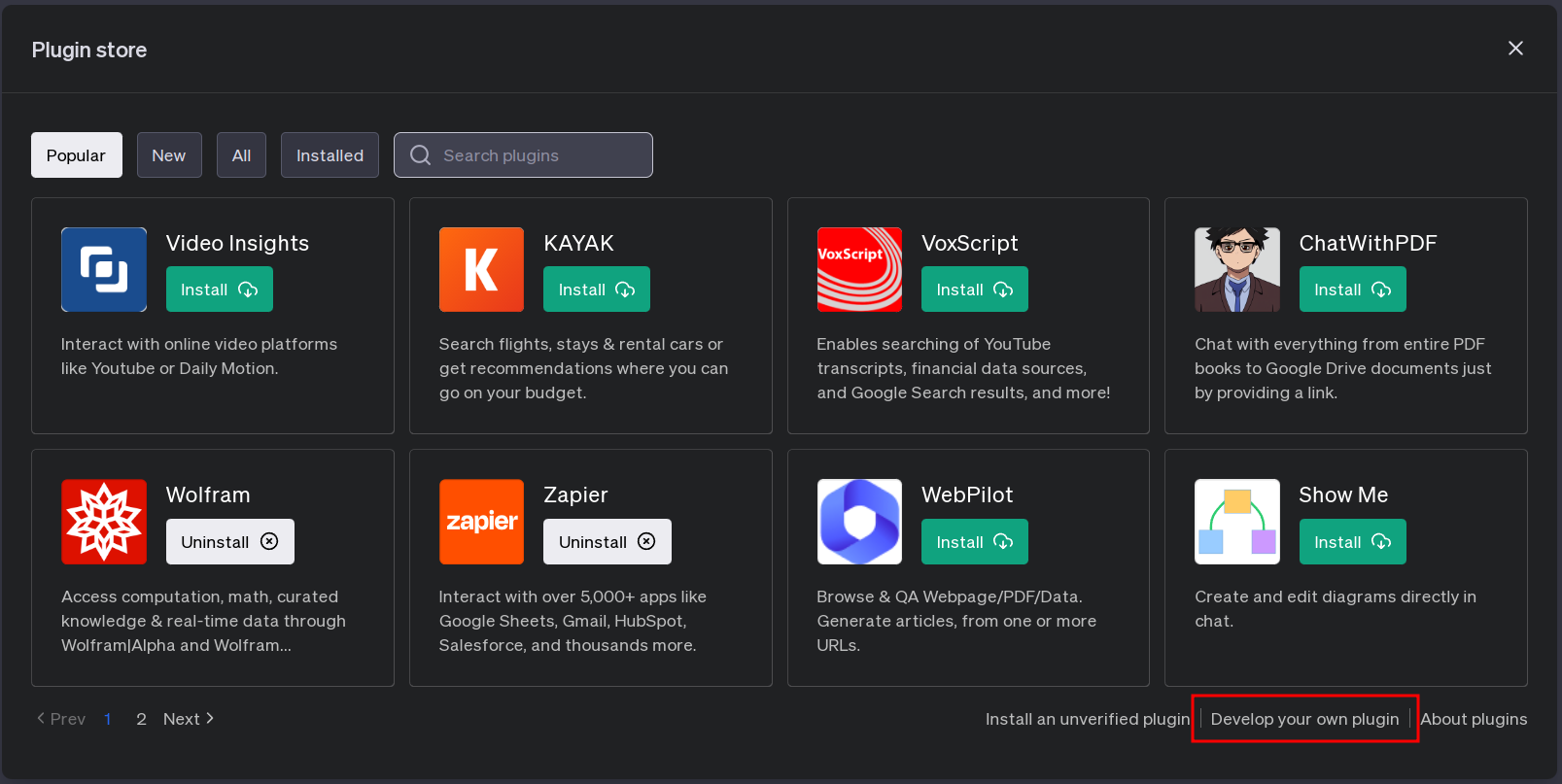Code ChatGPT Plugin is a TypeScript Code Analyzer that provides a set of utilities for analyzing TypeScript code. It can fetch a list of all TypeScript files in a project, find all functions in a file, and even get the content of a specific function. It's a great tool for developers who want to understand a TypeScript codebase, and it's also useful for automated tools that need to analyze or manipulate TypeScript code.
- Fetch a list of all TypeScript files in a project
- Find all functions in a TypeScript file
- Get the content of a specific function in a TypeScript file
- Clone the repository:
git clone https://github.com/kesor/chatgpt-code-plugin.git - Navigate to the project directory:
cd chatgpt-code-plugin - Install the dependencies:
npm install - Build project:
npm run build - Start the server:
BASE_PATH=/home/myuser/src/awesome-project npm start - Add the API into ChatGPT Plus plugins' "Developer your own plugin" interface (
http://localhost:3000)
-
You must have ChatGPT Plugins available to you
-
You must have ChatGPT Plugin Developer available to you as well
Once the server is running, you, or ChatGPT, can use the following endpoints:
GET /files: Fetch a list of all TypeScript files in the projectGET /files/:fileName: Get the content of a specific fileGET /functions: Fetch a list of all functions in the projectGET /files/:fileName/functions: Find all functions in a specific fileGET /files/:fileName/functions/:functionName: Get the content of a specific function in a file
We welcome contributions from the community!
- Fork the repository
- Create a new branch for each feature or bugfix
- Write your code
- Write tests for your code
- Run the tests and make sure they pass
- Submit a pull request
This project is licensed under the MIT License. See the LICENSE file for more information.


